Subtitle "Afrikaans" was produced by machine.Subtitle "አማርኛ" was produced by machine.Subtitle "العربية " was produced by machine.Subtitle "Ārāmāyâ" was produced by machine.Subtitle "azərbaycan dili " was produced by machine.Subtitle "беларуская мова " was produced by machine.Подзаглавието "България" е създадено от машина.সাবটাইটেল "বাংলা " মেশিন দ্বারা তৈরি করা হয়েছিল।Subtitle "བོད་ཡིག" was produced by machine.Subtitle "босански" was produced by machine.Subtitle "català" was produced by machine.Subtitle "Cebuano" was produced by machine.Subtitle "ગુજરાતી" was produced by machine.Subtitle "corsu" was produced by machine.Podtitul "Čeština" byl vytvořen automaticky.Subtitle "Cymraeg" was produced by machine.Subtitle "Dansk" was produced by machine.Untertitel "Deutsch" wurde maschinell erzeugt.Subtitle "Untertitel" was produced by machine.Ο υπότιτλος "Ελληνικά" δημιουργήθηκε αυτόματα.Subtitle "English" was produced by machine.Subtitle "Esperanto" was produced by machine.El subtítulo "Español" se generó automáticamente.Subtitle "Eesti" was produced by machine.Subtitle "euskara" was produced by machine.Subtitle "فارسی" was produced by machine.Subtitle "Suomi" was produced by machine.Le sous-titrage "Français" a été généré automatiquement.Subtitle "Frysk" was produced by machine.Subtitle "Gaeilge" was produced by machine.Subtitle "Gàidhlig" was produced by machine.Subtitle "Galego" was produced by machine.Subtitle "Schwizerdütsch" was produced by machine.Subtitle "هَوُسَ" was produced by machine.Subtitle "Ōlelo Hawaiʻi" was produced by machine.Subtitle "עברית" was produced by machine.Subtitle "हिन्दी" was produced by machine.Subtitle "Mẹo" was produced by machine.Subtitle "Hrvatski" was produced by machine.Subtitle "Kreyòl ayisyen " was produced by machine.Subtitle "Magyar" was produced by machine.Subtitle "Հայերեն" was produced by machine.Subtitle "Bahasa Indonesia " was produced by machine.Subtitle "Asụsụ Igbo " was produced by machine.Textun"Íslenska" var framkvæmt vélrænt.Sottotitoli "Italiano" sono stati generati automaticamente.字幕は"日本語" 自動的に生成されました。Subtitle "Basa Jawa" was produced by machine.Subtitle "ქართული" was produced by machine.Subtitle "қазақ тілі " was produced by machine.Subtitle "ភាសាខ្មែរ" was produced by machine.Subtitle "ಕನ್ನಡ" was produced by machine.Subtitle "한국어" was produced by machine.Subtitle "कोंकणी語" was produced by machine.Subtitle "کوردی" was produced by machine.Subtitle "Кыргызча" was produced by machine.Subtitle " lingua latina" was produced by machine.Subtitle "Lëtzebuergesch" was produced by machine.Subtitle "Lingala" was produced by machine.Subtitle "ພາສາ" was produced by machine.Subtitle "Lietuvių" was produced by machine.Subtitle "Latviešu" was produced by machine.Subtitle "fiteny malagasy" was produced by machine.Subtitle "te reo Māori" was produced by machine.Subtitle "македонски јазик" was produced by machine.Subtitle "malayāḷaṁ" was produced by machine.Subtitle "Монгол хэл" was produced by machine.Subtitle "मराठी" was produced by machine.Subtitle "Bahasa Malaysia" was produced by machine.Subtitle "Malti" was produced by machine.Subtitle "မြန်မာစာ " was produced by machine.Subtitle "नेपाली" was produced by machine.Ondertitels "Nederlands" machinaal geproduceerd.Subtitle "Norsk" was produced by machine.Subtitle "chiCheŵa" was produced by machine.Subtitle "ਪੰਜਾਬੀ" was produced by machine.Podtytuł "Polska" został utworzony przez maszynę.Subtitle "پښتو" was produced by machine.Subtitle "Português" was produced by machine.Subtitle "Română" was produced by machine.Subtitle "Язык жестов (Русский)" was produced by machine.Субтитры "Pусский" были созданы машиной.Subtitle "Kinyarwanda" was produced by machine.Subtitle "सिन्धी" was produced by machine.Subtitle "Deutschschweizer Gebärdensprache" was produced by machine.Subtitle "සිංහල" was produced by machine.Subtitle "Slovensky" was produced by machine.Subtitle "Slovenski" was produced by machine.Subtitle "gagana fa'a Samoa" was produced by machine.Subtitle "chiShona" was produced by machine.Subtitle "Soomaaliga" was produced by machine.Subtitle "Shqip" was produced by machine.Subtitle "србски" was produced by machine.Subtitle "Sesotho" was produced by machine.Subtitle "Basa Sunda" was produced by machine.Undertext "Svenska" är maskinell skapad.Subtitle "Kiswahili" was produced by machine.Subtitle "தமிழ்" was produced by machine.Subtitle "తెలుగు" was produced by machine.Subtitle "Тоҷикй" was produced by machine.Subtitle "ภาษาไทย" was produced by machine.ንኡስ ኣርእስቲ "ትግርኛ" ብማሽን እዩ ተፈሪዩ።Subtitle "Türkmençe" was produced by machine.Subtitle "Tagalog" ay nabuo sa pamamagitan ng makina.Subtitle "Türkçe" was produced by machine.Subtitle "татар теле" was produced by machine.Subtitle "Українська " was produced by machine.ذیلی عنوان "اردو" مشین کے ذریعہ تیار کیا گیا تھا۔Subtitle "Oʻzbek" was produced by machine.Subtitle "Tiếng Việt" was produced by machine.Subtitle "Serbšćina" was produced by machine.Subtitle "isiXhosa" was produced by machine.Subtitle "ייִדיש" was produced by machine.Subtitle "Yorùbá" was produced by machine.Subtitle "中文" was produced by machine.Subtitle "isiZulu" was produced by machine.
kla.TV accepts no liability for defective translation.kla.TV accepts no liability for defective translation.kla.TV accepts no liability for defective translation.kla.TV accepts no liability for defective translation.kla.TV accepts no liability for defective translation.kla.TV accepts no liability for defective translation.kla.TV не носи отговорност за некачествен превод.অপর্যাপ্ত অনুবাদের জন্য kla.TV কোন দায় বহন করে না।kla.TV accepts no liability for defective translation.kla.TV accepts no liability for defective translation.kla.TV accepts no liability for defective translation.kla.TV accepts no liability for defective translation.kla.TV accepts no liability for defective translation.kla.TV accepts no liability for defective translation.kla.TV nenese žádnou odpovědnost za chybné překlady.kla.TV accepts no liability for defective translation.kla.TV accepts no liability for defective translation.kla.TV übernimmt keine Haftung für mangelhafte Übersetzung.kla.TV accepts no liability for inadequate translationΗ kla.TV δεν φέρει καμία ευθύνη για ανεπαρκή μετάφραση.kla.TV accepts no liability for defective translation.kla.TV accepts no liability for defective translation.kla.TV no se hace responsable de traducciones incorrectas.kla.TV accepts no liability for defective translation.kla.TV accepts no liability for defective translation.kla.TV accepts no liability for defective translation.kla.TV accepts no liability for defective translation.kla.TV n'assume aucune responsabilité en cas de mauvaise traduction.kla.TV accepts no liability for defective translation.kla.TV accepts no liability for defective translation.kla.TV accepts no liability for defective translation.kla.TV accepts no liability for defective translation.kla.TV accepts no liability for defective translation.kla.TV accepts no liability for defective translation.kla.TV accepts no liability for defective translation.kla.TV accepts no liability for defective translation.kla.TV accepts no liability for defective translation.kla.TV accepts no liability for defective translation.kla.TV accepts no liability for defective translation.kla.TV accepts no liability for defective translation.kla.TV nem vállal felelősséget a hibás fordításértkla.TV accepts no liability for defective translation.kla.TV accepts no liability for defective translation.kla.TV accepts no liability for defective translation.kla.TV tekur enga ábyrgð á áræðanleika þýðingarinnarKla.TV non si assume alcuna responsabilità per traduzioni lacunose e/o errate.Kla.TV は、不適切な翻訳に対して一切の責任を負いません。kla.TV accepts no liability for defective translation.kla.TV accepts no liability for defective translation.kla.TV accepts no liability for defective translation.kla.TV accepts no liability for defective translation.kla.TV accepts no liability for defective translation.kla.TV accepts no liability for defective translation.kla.TV accepts no liability for defective translation.kla.TV accepts no liability for defective translation.kla.TV accepts no liability for defective translation.kla.TV accepts no liability for defective translation.kla.TV accepts no liability for defective translation.kla.TV accepts no liability for defective translation.kla.TV accepts no liability for defective translation.kla.TV accepts no liability for defective translation.kla.TV accepts no liability for defective translation.kla.TV accepts no liability for defective translation.kla.TV accepts no liability for defective translation.kla.TV accepts no liability for defective translation.kla.TV accepts no liability for defective translation.kla.TV accepts no liability for defective translation.kla.TV accepts no liability for defective translation.kla.TV accepts no liability for defective translation.kla.TV accepts no liability for defective translation.kla.TV accepts no liability for defective translation.kla.TV accepts no liability for defective translation.kla.TV aanvaardt geen aansprakelijkheid voor foutieve vertalingen.kla.TV accepts no liability for defective translation.kla.TV accepts no liability for defective translation.kla.TV accepts no liability for defective translation.kla.TV nie ponosi odpowiedzialności za wadliwe tłumaczenie.kla.TV accepts no liability for defective translation.kla.TV accepts no liability for defective translation.kla.TV accepts no liability for defective translation.kla.TV accepts no liability for defective translation.kla.TV не несет ответственности за некачественный перевод.kla.TV accepts no liability for defective translation.kla.TV accepts no liability for defective translation.kla.TV accepts no liability for defective translation.kla.TV accepts no liability for defective translation.kla.TV accepts no liability for defective translation.kla.TV accepts no liability for defective translation.kla.TV accepts no liability for defective translation.kla.TV accepts no liability for defective translation.kla.TV accepts no liability for defective translation.kla.TV nuk mban asnjë përgjegjësi për përkthime joadekuate.kla.TV accepts no liability for defective translation.kla.TV accepts no liability for defective translation.kla.TV accepts no liability for defective translation.Kla.TV tar inget ansvar för felaktiga översättningar.kla.TV accepts no liability for defective translation.kla.TV accepts no liability for defective translation.kla.TV accepts no liability for defective translation.kla.TV accepts no liability for defective translation.kla.TV accepts no liability for defective translation.kla.TV ንዝኾነ ጉድለት ትርጉም ዝኾነ ይኹን ሓላፍነት ኣይቅበልን እዩ።kla.TV accepts no liability for defective translation.kla. Walang pananagutan ang TV sa mga depektibong pagsasalin.kla.TV accepts no liability for defective translation.kla.TV accepts no liability for defective translation.kla.TV accepts no liability for defective translation.kla.TV عیب دار ترجمہ کے لیے کوئی ذمہ داری قبول نہیں کرتا ہے۔kla.TV accepts no liability for defective translation.kla.TV accepts no liability for defective translation.kla.TV accepts no liability for defective translation.kla.TV accepts no liability for defective translation.kla.TV accepts no liability for defective translation.kla.TV accepts no liability for defective translation.kla.TV accepts no liability for defective translation.kla.TV accepts no liability for defective translation.
This is a modal window.
The media could not be loaded, either because the server or network failed or because the format is not supported.
Council on Foreign Relations – The Secret World Government?
Do you also wonder why almost all countries in the world seem to follow the same policy? Then it is worth taking a closer look at the Council on Foreign Relations, which was founded 100 years ago. Undoubtedly this only succeeded because the CFR pulled its strings in secret, out of the public eye. The time has come to expose this era of hidden abuse of power.
[continue reading]
Council on Foreign Relations – The Secret World Government?
Download broadcast and attachments in the wanted quality: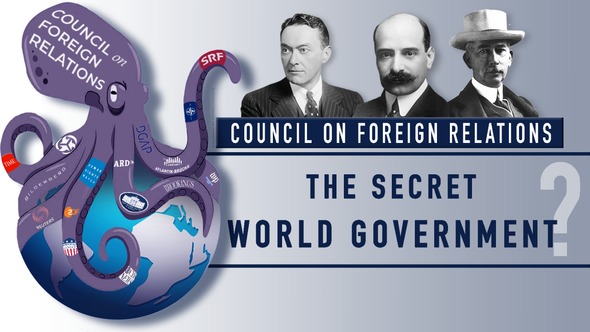
Useage rights:
Standard-Kla.TV-Licence
Topics A-Z
Enter a word for search or use the alphabetic search-order



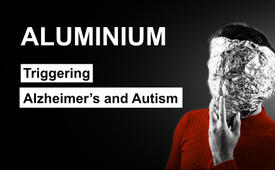








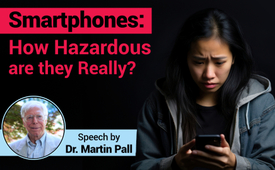
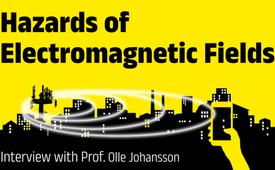
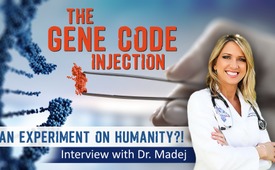
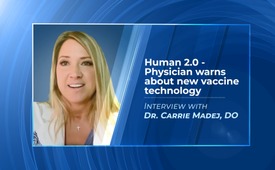

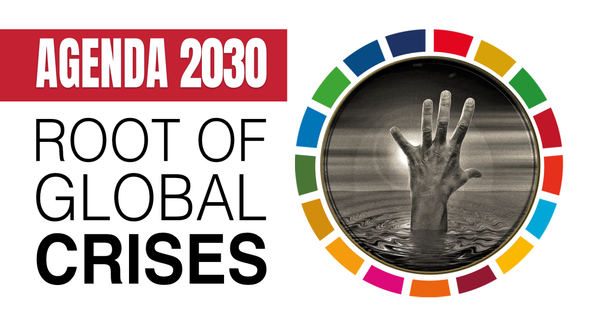
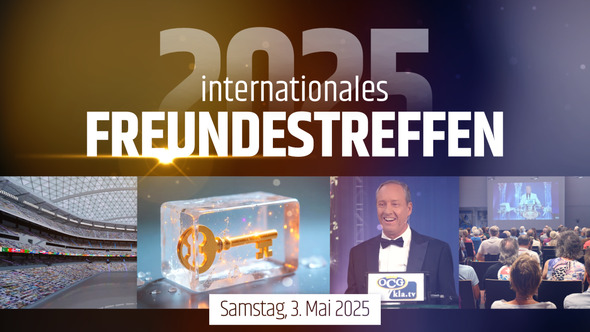


09.10.2021 | www.kla.tv/20142
In the current times, when an almost perfectly uniform and consistent Corona policy is being pursued worldwide, some people rub their eyes in wonder and ask themselves why this is. Even if the mea In the current times, when an almost perfectly uniform and consistent Corona policy is being pursued worldwide, some people rub their eyes in wonder and ask themselves why this is. Even if the measures are handled slightly differently nationally, globally the same approach is being taken as regards how the problem of the "pandemic" is to be combated. The situation is similar with European foreign policy, which for years has followed U.S. foreign policy or at least adopted its views and rhetoric almost 1:1. Examples of this are the EU sanctions against Russia, especially since the Ukraine crisis in 2014, or the sanctions against Iran. It is also remarkable that U.S. and European politics and press are consistently uniform when it comes to vilifying disagreeable heads of state and governments, such as those of Russia, Belarus, China, North Korea, Iran, Syria, or Venezuela. Is this increasing unification of world politics just coincidence or part of a global agenda? Anyone who wants an answer to this question cannot avoid looking into the Council on Foreign Relations. This U.S. think tank just celebrated its 100th anniversary - on July 29, 2021, to be precise - and is considered one of the most influential private organizations in the world. Think tanks are associations that develop political ideas and strategies and introduce them into politics. Although the Council's power is undisputed, it is probably absolutely unknown to the average citizen. Let's take a closer look at this organization. Behind the inconspicuous name "Council on Foreign Relations" so much power is hidden that the news magazine DER SPIEGEL wrote as early as 1975 that it was the "most influential private institution in America and the Western world". Wikipedia writes that the work of this network was decisive for American foreign policy and diplomacy in the 20th century. This is no coincidence: After the end of World War II, it was the Council on Foreign Relations that designed the framework for the United Nations and the Marshall Plan. To this day, members of the Council occupy key positions in the U.S. government. So it is not surprising that Foreign Affairs magazine, which the Council publishes, is considered the "strategy magazine of U.S. foreign policy" and has even been called the "Bible of foreign policy thinking" by the Washington Post. But how does an association of private citizens come to have such a tremendous influence on U.S. foreign policy and thus on world politics? To understand the power and the spirit involved in this Council, let's scroll back in history and take a look at the origins of this think tank. The Swiss Policy Research network describes the founding motive as follows: The origins of the Council on Foreign Relations lie in the so-called "trauma of 1920": After World War I, the U.S. could have taken over the global leadership role for the first time - but the Senate decided against joining the League of Nations and the war-weary population elected Warren G. Harding, a president who promised a "return to normality" and wanted to take care of America's and Americans' affairs and problems first. To avoid such a setback in the future and to "awaken America to its worldwide responsibilities," internationally oriented bankers, entrepreneurs and politicians founded the bipartisan CFR in the financial and commercial metropolis of New York the following year. Through the collaboration of leading academics and publicists [...] ideas for an active foreign policy would be developed and made popular with the public. This reveals a key factor that catapulted the Council so quickly into the center of power: It was, in a sense, the child of representatives of U.S. high finance. Men who possessed money and political influence in abundance. Let us now take a closer look at three men who can be considered as formative figures of the CFR. Edward Mandell House: House is a good example of the power and spirit uniting the CFR. He was the personal advisor to then U.S. President Woodrow Wilson and, equally important, the decisive force of the RIIA. The Royal Institute of International Affairs, in turn, was an organization founded in 1919 solely to build an Anglo-American world empire. According to Cecil Rhodes, the forefather of this idea, the British were the "leading race of the world," and the more of the world they inhabited the better for it. Walter Lippmann: Lippmann is considered one of the most influential political writers of the 20th century. His way of thinking is characteristic of the CFR. At the age of 26, he was already calling for U.S. global supremacy and the influence of American corporations over international businesses. His book "Public Opinion" (first published in English)is now a standard work and shows who’s brainchild Lippmann was. Since reality was too complex and the broad masses neither able nor willing to determine the "general interest," a "specialized group of people" should advise the political decision-makers. These in turn should master the "art of persuasion" - let's call it "manipulation techniques" - in order to make the decisions taken appear to the people to be the right ones. In this way, a unified "public opinion" had to be established - necessary for the cohesion of society. With this elitist theory, Lippmann radically questioned the essence of democracy, namely the right of all citizens to have a say. Moreover, Lippmann was a member of the Fabian Society, a socialist organization that advocated eugenics, i.e. the selection of the "good genes" of mankind. Paul Warburg: The offspring of the banking dynasty bearing the same name was a powerful and popular man even before the CFR was founded. It was he who had initiated the establishment of a U.S. central bank in 1903. With the implementation of his idea, the Federal Reserve Bank was born; a central bank owned by private banks that lends money to the U.S. government. The FED, as it is also called, is in essence an omnipotent organization, which, according to critics, has always had a tight grip on U.S. politics because the U.S. government, as the Fed's debtor, is dependent on it. Warburg’s son and CFR member James Warburg once said the following telling words: "We will have a world government, whether we want it or not. The only question is whether world government will be achieved by conquest or by the consent of the people." The success of these gentlemen was not long in coming. Already during the Second World War, i.e. about 20 years after its founding, the influence of these "leading academics and publicists" on the U.S. government had become so great that they essentially determined U.S. foreign policy: The U.S. war strategy, the principles of the postwar order, and by extension the principles of the UN, the World Bank, and the International Monetary Fund were all the work of the Council. But there was still no satisfaction in adopting U.S. foreign policy, certainly not when the U.S. elite networks were established around the world with the Allied victory in World War II. Keeping the goal of world government in mind, elite networks were established around the world to build up regional elite groups loyal to the line. In order to be able to expand and control its influence globally, the CFR uses among others, the following three areas of power: The Bilderberg Conference According to Swiss Policy Research, CFR member Charles D. Jackson founded the Bilderberg Conference in 1954, and it has been held annually since then. It serves to bring American and European elite together. It is probably more accurate to speak of “bringing into line". High-ranking personalities from the worlds of business, politics, the military, the media, academia, the nobility and the intelligence services meet here to discuss current political, economic and social issues. What is suspicious about this meeting of the powerful is that the so-called Chatham House Rule applies to the gathering. This states that one may only talk about the contents of the conference if the identity and affiliation of other participants is not discussed. However, it usually does not get that far. To this day, the public has never known specifically what was decided at the conferences or implemented by their members. The mainstream media, whose representatives attend the conference every year, also follow the rule. Mostly limited to reporting on a "meeting of the high and mighty" and labeling the critics and skeptics as conspiracy theorists. The mainstream media, whose representatives attend the conference every year, also follow the rule. As alternative media raised awareness of these conferences, the Bilderberg members made certain "admissions": • In 2010, the Bilderberg Conference went online with a website. After that, the list of participants was published there each time, but initially only after the conference. • The topics that were supposedly discussed also were included later on. • Meanwhile, a list of participants and topics is even announced in advance. Through these apparent "admissions" the real reasons for the conferences could and can be kept secret. What global influence the conference must have is not only evident from the lists of participants, but also from the fact that it seems to be a veritable career springboard for European politicians on the world stage. Angela Merkel (German Chancellor), Emmanuel Macron (President of France) or Ursula von der Leyen (President of the European Commission) all took up their respective posts after attending a Bilderberg conference, to name but a few. A more comprehensive list is shown at the end of this documentation. Trilateral Commission While the Bilderberg Conferences brought together European and American elites starting in 1954, the Trilateral Commission was additionally established in 1972. It serves the same purpose, but the concept of bringing regional elites into line has now been extended to the Asian region. Of course, it is not communicated that way. Its website says that a "more common form of leadership" is needed so that the international system can successfully meet the major challenges of the coming years. Some 400 highly influential members from the U.S., European and Asia-Pacific economies meet annually. They include weighty figures such as the Frenchman Jean-Claude Trichet, former head of the European Central Bank, or U.S. Henry Kissinger, former U.S. secretary of state and alleged war criminal, Larry Fink, CEO of financial giant BlackRock, and his compatriot Marne Levine, former senior manager of Instagram. Meghan O'Sullivan, chair of the Trilateral's North America Group, described the commission's approach in 2019 as follows: "We need to move forward whether or not we can get our governments to agree to our prescriptions and recommendations." David Rockefeller, one of the intellectual fathers of the Trilateral Commission and a longtime CFR director, was even more direct in describing the power claims of these elite circles. In his book Memoirs, he wrote, "Some [ideological extremists] even believe that we are part of a secret cabal working against the best interests of the United States. They accuse my family and me of being 'internationalists' and of conspiring with others around the world to build a more unified global political and economic structure - 1ne world (one world), if you will." If that is the accusation, I plead guilty and I am proud of it." US-Administration Nowhere can power and influence be better viewed than in the example of U.S. governments. John J. McCloy, former chairman of the CFR and advisor to several U.S. presidents, once put it this way: "Whenever we needed a man in Washington, we simply leafed through the Council's membership list and made a phone call to New York." Eight United States presidents and vice presidents came from the CFR ranks, 17 secretaries of state, 20 secretaries of defense, 18 secretaries of the treasury, and 15 CIA directors. The modern history of the United States, which is heavily laden with wars and war crimes, is thus also closely linked to the Council on Foreign Relations. But the CFR not only influences the U.S. government. The U.S. media has also become its mouthpiece, so to speak, due to the CFR membership of many of its editors and alpha journalists. From this perspective, it suddenly seems logical why former U.S. President Donald Trump, who had declared war on the "establishment" when he took office, had been so hysterically attacked. Indeed, Trump is not a CFR member and many times acted contrary to the Council's globalist interests with his policies. It is now equally obvious that since the election of the new president, calm has returned to the press: The U.S. administration today is exactly what Isaiah Bowman, one of the founding fathers of the CFR, had in mind: A world power that sees itself as the maintainer of world security, retaining power over weaker territories while renouncing "conventional forms of imperialism," for example, the open warlike suppression of rivals. These three power factors alone and their workings - the U.S. government, the Bilderberg Conference and the Trilateral Commission - suggest that the Council on Foreign Relations is indeed an organization with claims to world domination. But the CFR uses other networks of relationships and information to establish its claims and interests. These are so extensive that the research network Swiss Policy Research speaks of a "propaganda matrix". Transatlantic Networks Political scientist Hermann Ploppa once called the Council on Foreign Relations the "mother of all transatlantic networks. These networks solidify the spirit of the Council, especially in Germany, for example through the Atlantik-Brücke e.V.: This association, founded by the CFR President at the time, John McCloy and CFR member Eric Warburg, introduces young up-and-coming leaders, politicians, and media people to the transatlantic mind-set. Another example is the "Deutsche Gesellschaft für Außenpolitik", whose English name is German Council on Foreign Relations. Similar to its parent organization, this think tank provides policy advice. Media In addition to the CFR's great influence on the U.S. mass media, its connections extend to the world's leading news agencies. Longtime Thomson Reuters editor-in-chief David Schlesinger is also a CFR member, as is Isaac Lee of the board of the world's largest agency, the Associated Press. the CFR's great influence on the U.S. mass media, its connections extend to the world's leading news agencies. In Europe, CFR-compliant reporting is ensured by transatlantic affiliates. Atlantik-Brücke members and sympathizers can be found across the German media landscape, from TV station ARD to Frankfurter Allgemeine Zeitung, from Die Zeit and Süddeutsche Zeitung to ZDF. Media professionals are also frequent guests at the Bilderberg conference, such as former NZZ editor-in-chief Markus Spillmann, Tamedia publisher Pietro Supino or the manager of the Axel Springer SE publishing group, Mathias Döpfner. Last but not least, CFR members themselves sometimes appear in local public media reports - as "experts" and, of course, without any reference to the CFR's goals and way of thinking. Due to this transatlantic influence in reporting, many normal citizens see the world through the glasses of the power elite without realizing it. Humanitarian Organizations Even humanitarian organizations are in some cases highly influenced by the CFR. The human rights organizations Human Rights Watch and Amnesty International were or are led by CFR members. The situation is similar with the U.S. National Endowment for Democracy (NED), USAID, the United States Agency for International Development, and other relevant organizations. This is very significant because such organizations repeatedly call for or justify U.S. or NATO military operations, as in the case of the Second Gulf War with the help of the incubator lie, in the case of the war in Afghanistan and also in Libya. Military Regarding military, Swiss Policy Research writes: "The CFR has maintained its own officer training program for decades, so that it is now estimated that about 75% of all senior U.S. military officers have been trained by the CFR - including nearly all chiefs of staff, NATO supreme commanders, and area commanders since World War II. [...] In this way, the Council has built up an ideologically trained, imperial armed force of a kind otherwise known almost only from totalitarian regimes." Economy Anyone who thinks that the Council is only politically active is very much mistaken. According to its own information, more than 120 companies from the financial, health, nutrition and industrial sectors, such as Toyota Motor Corporation, the financial services provider American Express, the industrial group BASF, the beverage and food manufacturer PepsiCo and the pharmaceutical giant Johnson & Johnson, are involved in its Corporate Program, which has been in existence since 1953. Even the tech giants Facebook and Google are in on the action. Even though the CFR has "only" a little over 5,000 members, it is almost impossible to show its connections entirely. It should be noted that its members can be found in other organizations with global influence, such as the CIA or the Federal Reserve or the World Bank. Important investigative commissions such as the Warren Commission, which should have uncovered the assassination of John F. Kennedy, and the 9/11 Commission were also riddled with them. The results of these investigations are highly dubious, but to this day they shape the image of a clean slate on the part of the U.S. government regarding these events. In short, much like the "ubique" lettering emblazoned on the logo of the CFR's Foreign Affairs magazine, this network is everywhere. if the CFR has "only" a little over 5,000 members, it is almost impossible to show its connections entirely. It is questionable whether such an association, for which the term "world government" is indeed very close, really works or wants to work for the good of all people. As history shows, it is always about the increase of power and wealth, accompanied by wars, the dismantling of national sovereignty and the empowerment of international corporations. It is remarkable how a comparatively small association has managed to amass such power within 100 years. Undoubtedly, this has only succeeded because the CFR has pulled its strings in secret, in camera. It is therefore time to expose this era of hidden abuse of power. Help to put an end to this world government striving by spreading these facts in your environment and informing your elected politicians about it. Incomplete list of politicians who entered the stage of world politics after attending a Bilderberg conference: German Chancellors: - Helmut Schmidt: Conference participation 1973 - Chancellor as of 1974 - Helmut Kohl: Conference participation 1980 and 1982 - Federal Chancellor as of 1982 - Angela Merkel: Conference participation 2005 - Federal Chancellor as of 2005 International Heads of Government: - Margaret Thatcher: Conference attendance 1977 - British Prime Minister from 1979. - Tony Blair: Conference participation 1993 - British Prime Minister as of 1997 - Bill Clinton: Conference participation 1991 - U.S. President as of 1993 - Alfred Gusenbauer: Conference participation 2006 - Austrian Chancellor as of 2007 - Emmanuel Macron: conference participation 2014 - French president as of 2017 Other politicians: - Romano Prodi: Conference participation 1999 - President of the EU Commission as of Sept. 1999. - Volker Rühe: Conference participation 1991 and 1992 - German Minister of Defense as of 1992 - Wolfgang Schäuble: Conference participation 2003 - German Minister of the Interior as of 2005 - Guido Westerwelle: Conference participation 2007 - German Foreign Minister as of 2009 - Christian Lindner: conference participation 2013 - FDP chairman as of Dec. 2013 - Jens Spahn: Conference participation 2017 - German Minister of Health as of 2018 - Colin Powell: Conference participation 1997 - US Secretary of State as of 2001 - Timothy Geithner: Conference participation 2008 - US Secretary of the Treasury as of 2009 In addition: - George Robertson: conference participation 1998 - NATO Secretary General 1999 - Mario Draghi: Conference participation 2009 - President of the European Central Bank 2011 - Ursula von der Leyen: Conference participation 2019 - President of the European Commission since 2019 sures are handled slightly differently nationally, globally the same approach is being taken as regards how the problem of the "pandemic" is to be combated. The situation is similar with European foreign policy, which for years has followed U.S. foreign policy or at least adopted its views and rhetoric almost 1:1. Examples of this are the EU sanctions against Russia, especially since the Ukraine crisis in 2014, or the sanctions against Iran. It is also remarkable that U.S. and European politics and press are consistently uniform when it comes to vilifying disagreeable heads of state and governments, such as those of Russia, Belarus, China, North Korea, Iran, Syria, or Venezuela. Is this increasing unification of world politics just coincidence or part of a global agenda? Anyone who wants an answer to this question cannot avoid looking into the Council on Foreign Relations. This U.S. think tank just celebrated its 100th anniversary - on July 29, 2021, to be precise - and is considered one of the most influential private organizations in the world. Think tanks are associations that develop political ideas and strategies and introduce them into politics. Although the Council's power is undisputed, it is probably absolutely unknown to the average citizen. Let's take a closer look at this organization. Behind the inconspicuous name "Council on Foreign Relations" so much power is hidden that the news magazine DER SPIEGEL wrote as early as 1975 that it was the "most influential private institution in America and the Western world". Wikipedia writes that the work of this network was decisive for American foreign policy and diplomacy in the 20th century. This is no coincidence: After the end of World War II, it was the Council on Foreign Relations that designed the framework for the United Nations and the Marshall Plan. To this day, members of the Council occupy key positions in the U.S. government. So it is not surprising that Foreign Affairs magazine, which the Council publishes, is considered the "strategy magazine of U.S. foreign policy" and has even been called the "Bible of foreign policy thinking" by the Washington Post. But how does an association of private citizens come to have such a tremendous influence on U.S. foreign policy and thus on world politics? To understand the power and the spirit involved in this Council, let's scroll back in history and take a look at the origins of this think tank. The Swiss Policy Research network describes the founding motive as follows: The origins of the Council on Foreign Relations lie in the so-called "trauma of 1920": After World War I, the U.S. could have taken over the global leadership role for the first time - but the Senate decided against joining the League of Nations and the war-weary population elected Warren G. Harding, a president who promised a "return to normality" and wanted to take care of America's and Americans' affairs and problems first. To avoid such a setback in the future and to "awaken America to its worldwide responsibilities," internationally oriented bankers, entrepreneurs and politicians founded the bipartisan CFR in the financial and commercial metropolis of New York the following year. Through the collaboration of leading academics and publicists [...] ideas for an active foreign policy would be developed and made popular with the public. This reveals a key factor that catapulted the Council so quickly into the center of power: It was, in a sense, the child of representatives of U.S. high finance. Men who possessed money and political influence in abundance. Let us now take a closer look at three men who can be considered as formative figures of the CFR. Edward Mandell House: House is a good example of the power and spirit uniting the CFR. He was the personal advisor to then U.S. President Woodrow Wilson and, equally important, the decisive force of the RIIA. The Royal Institute of International Affairs, in turn, was an organization founded in 1919 solely to build an Anglo-American world empire. According to Cecil Rhodes, the forefather of this idea, the British were the "leading race of the world," and the more of the world they inhabited the better for it. Walter Lippmann: Lippmann is considered one of the most influential political writers of the 20th century. His way of thinking is characteristic of the CFR. At the age of 26, he was already calling for U.S. global supremacy and the influence of American corporations over international businesses. His book "Public Opinion" (first published in English)is now a standard work and shows who’s brainchild Lippmann was. Since reality was too complex and the broad masses neither able nor willing to determine the "general interest," a "specialized group of people" should advise the political decision-makers. These in turn should master the "art of persuasion" - let's call it "manipulation techniques" - in order to make the decisions taken appear to the people to be the right ones. In this way, a unified "public opinion" had to be established - necessary for the cohesion of society. With this elitist theory, Lippmann radically questioned the essence of democracy, namely the right of all citizens to have a say. Moreover, Lippmann was a member of the Fabian Society, a socialist organization that advocated eugenics, i.e. the selection of the "good genes" of mankind. Paul Warburg: The offspring of the banking dynasty bearing the same name was a powerful and popular man even before the CFR was founded. It was he who had initiated the establishment of a U.S. central bank in 1903. With the implementation of his idea, the Federal Reserve Bank was born; a central bank owned by private banks that lends money to the U.S. government. The FED, as it is also called, is in essence an omnipotent organization, which, according to critics, has always had a tight grip on U.S. politics because the U.S. government, as the Fed's debtor, is dependent on it. Warburg’s son and CFR member James Warburg once said the following telling words: "We will have a world government, whether we want it or not. The only question is whether world government will be achieved by conquest or by the consent of the people." The success of these gentlemen was not long in coming. Already during the Second World War, i.e. about 20 years after its founding, the influence of these "leading academics and publicists" on the U.S. government had become so great that they essentially determined U.S. foreign policy: The U.S. war strategy, the principles of the postwar order, and by extension the principles of the UN, the World Bank, and the International Monetary Fund were all the work of the Council. But there was still no satisfaction in adopting U.S. foreign policy, certainly not when the U.S. elite networks were established around the world with the Allied victory in World War II. Keeping the goal of world government in mind, elite networks were established around the world to build up regional elite groups loyal to the line. In order to be able to expand and control its influence globally, the CFR uses among others, the following three areas of power: The Bilderberg Conference According to Swiss Policy Research, CFR member Charles D. Jackson founded the Bilderberg Conference in 1954, and it has been held annually since then. It serves to bring American and European elite together. It is probably more accurate to speak of “bringing into line". High-ranking personalities from the worlds of business, politics, the military, the media, academia, the nobility and the intelligence services meet here to discuss current political, economic and social issues. What is suspicious about this meeting of the powerful is that the so-called Chatham House Rule applies to the gathering. This states that one may only talk about the contents of the conference if the identity and affiliation of other participants is not discussed. However, it usually does not get that far. To this day, the public has never known specifically what was decided at the conferences or implemented by their members. The mainstream media, whose representatives attend the conference every year, also follow the rule. Mostly limited to reporting on a "meeting of the high and mighty" and labeling the critics and skeptics as conspiracy theorists. The mainstream media, whose representatives attend the conference every year, also follow the rule. As alternative media raised awareness of these conferences, the Bilderberg members made certain "admissions": • In 2010, the Bilderberg Conference went online with a website. After that, the list of participants was published there each time, but initially only after the conference. • The topics that were supposedly discussed also were included later on. • Meanwhile, a list of participants and topics is even announced in advance. Through these apparent "admissions" the real reasons for the conferences could and can be kept secret. What global influence the conference must have is not only evident from the lists of participants, but also from the fact that it seems to be a veritable career springboard for European politicians on the world stage. Angela Merkel (German Chancellor), Emmanuel Macron (President of France) or Ursula von der Leyen (President of the European Commission) all took up their respective posts after attending a Bilderberg conference, to name but a few. A more comprehensive list is shown at the end of this documentation. Trilateral Commission While the Bilderberg Conferences brought together European and American elites starting in 1954, the Trilateral Commission was additionally established in 1972. It serves the same purpose, but the concept of bringing regional elites into line has now been extended to the Asian region. Of course, it is not communicated that way. Its website says that a "more common form of leadership" is needed so that the international system can successfully meet the major challenges of the coming years. Some 400 highly influential members from the U.S., European and Asia-Pacific economies meet annually. They include weighty figures such as the Frenchman Jean-Claude Trichet, former head of the European Central Bank, or U.S. Henry Kissinger, former U.S. secretary of state and alleged war criminal, Larry Fink, CEO of financial giant BlackRock, and his compatriot Marne Levine, former senior manager of Instagram. Meghan O'Sullivan, chair of the Trilateral's North America Group, described the commission's approach in 2019 as follows: "We need to move forward whether or not we can get our governments to agree to our prescriptions and recommendations." David Rockefeller, one of the intellectual fathers of the Trilateral Commission and a longtime CFR director, was even more direct in describing the power claims of these elite circles. In his book Memoirs, he wrote, "Some [ideological extremists] even believe that we are part of a secret cabal working against the best interests of the United States. They accuse my family and me of being 'internationalists' and of conspiring with others around the world to build a more unified global political and economic structure - 1ne world (one world), if you will." If that is the accusation, I plead guilty and I am proud of it." US-Administration Nowhere can power and influence be better viewed than in the example of U.S. governments. John J. McCloy, former chairman of the CFR and advisor to several U.S. presidents, once put it this way: "Whenever we needed a man in Washington, we simply leafed through the Council's membership list and made a phone call to New York." Eight United States presidents and vice presidents came from the CFR ranks, 17 secretaries of state, 20 secretaries of defense, 18 secretaries of the treasury, and 15 CIA directors. The modern history of the United States, which is heavily laden with wars and war crimes, is thus also closely linked to the Council on Foreign Relations. But the CFR not only influences the U.S. government. The U.S. media has also become its mouthpiece, so to speak, due to the CFR membership of many of its editors and alpha journalists. From this perspective, it suddenly seems logical why former U.S. President Donald Trump, who had declared war on the "establishment" when he took office, had been so hysterically attacked. Indeed, Trump is not a CFR member and many times acted contrary to the Council's globalist interests with his policies. It is now equally obvious that since the election of the new president, calm has returned to the press: The U.S. administration today is exactly what Isaiah Bowman, one of the founding fathers of the CFR, had in mind: A world power that sees itself as the maintainer of world security, retaining power over weaker territories while renouncing "conventional forms of imperialism," for example, the open warlike suppression of rivals. These three power factors alone and their workings - the U.S. government, the Bilderberg Conference and the Trilateral Commission - suggest that the Council on Foreign Relations is indeed an organization with claims to world domination. But the CFR uses other networks of relationships and information to establish its claims and interests. These are so extensive that the research network Swiss Policy Research speaks of a "propaganda matrix". Transatlantic Networks Political scientist Hermann Ploppa once called the Council on Foreign Relations the "mother of all transatlantic networks. These networks solidify the spirit of the Council, especially in Germany, for example through the Atlantik-Brücke e.V.: This association, founded by the CFR President at the time, John McCloy and CFR member Eric Warburg, introduces young up-and-coming leaders, politicians, and media people to the transatlantic mind-set. Another example is the "Deutsche Gesellschaft für Außenpolitik", whose English name is German Council on Foreign Relations. Similar to its parent organization, this think tank provides policy advice. Media In addition to the CFR's great influence on the U.S. mass media, its connections extend to the world's leading news agencies. Longtime Thomson Reuters editor-in-chief David Schlesinger is also a CFR member, as is Isaac Lee of the board of the world's largest agency, the Associated Press. the CFR's great influence on the U.S. mass media, its connections extend to the world's leading news agencies. In Europe, CFR-compliant reporting is ensured by transatlantic affiliates. Atlantik-Brücke members and sympathizers can be found across the German media landscape, from TV station ARD to Frankfurter Allgemeine Zeitung, from Die Zeit and Süddeutsche Zeitung to ZDF. Media professionals are also frequent guests at the Bilderberg conference, such as former NZZ editor-in-chief Markus Spillmann, Tamedia publisher Pietro Supino or the manager of the Axel Springer SE publishing group, Mathias Döpfner. Last but not least, CFR members themselves sometimes appear in local public media reports - as "experts" and, of course, without any reference to the CFR's goals and way of thinking. Due to this transatlantic influence in reporting, many normal citizens see the world through the glasses of the power elite without realizing it. Humanitarian Organizations Even humanitarian organizations are in some cases highly influenced by the CFR. The human rights organizations Human Rights Watch and Amnesty International were or are led by CFR members. The situation is similar with the U.S. National Endowment for Democracy (NED), USAID, the United States Agency for International Development, and other relevant organizations. This is very significant because such organizations repeatedly call for or justify U.S. or NATO military operations, as in the case of the Second Gulf War with the help of the incubator lie, in the case of the war in Afghanistan and also in Libya. Military Regarding military, Swiss Policy Research writes: "The CFR has maintained its own officer training program for decades, so that it is now estimated that about 75% of all senior U.S. military officers have been trained by the CFR - including nearly all chiefs of staff, NATO supreme commanders, and area commanders since World War II. [...] In this way, the Council has built up an ideologically trained, imperial armed force of a kind otherwise known almost only from totalitarian regimes." Economy Anyone who thinks that the Council is only politically active is very much mistaken. According to its own information, more than 120 companies from the financial, health, nutrition and industrial sectors, such as Toyota Motor Corporation, the financial services provider American Express, the industrial group BASF, the beverage and food manufacturer PepsiCo and the pharmaceutical giant Johnson & Johnson, are involved in its Corporate Program, which has been in existence since 1953. Even the tech giants Facebook and Google are in on the action. Even though the CFR has "only" a little over 5,000 members, it is almost impossible to show its connections entirely. It should be noted that its members can be found in other organizations with global influence, such as the CIA or the Federal Reserve or the World Bank. Important investigative commissions such as the Warren Commission, which should have uncovered the assassination of John F. Kennedy, and the 9/11 Commission were also riddled with them. The results of these investigations are highly dubious, but to this day they shape the image of a clean slate on the part of the U.S. government regarding these events. In short, much like the "ubique" lettering emblazoned on the logo of the CFR's Foreign Affairs magazine, this network is everywhere. if the CFR has "only" a little over 5,000 members, it is almost impossible to show its connections entirely. It is questionable whether such an association, for which the term "world government" is indeed very close, really works or wants to work for the good of all people. As history shows, it is always about the increase of power and wealth, accompanied by wars, the dismantling of national sovereignty and the empowerment of international corporations. It is remarkable how a comparatively small association has managed to amass such power within 100 years. Undoubtedly, this has only succeeded because the CFR has pulled its strings in secret, in camera. It is therefore time to expose this era of hidden abuse of power. Help to put an end to this world government striving by spreading these facts in your environment and informing your elected politicians about it. Incomplete list of politicians who entered the stage of world politics after attending a Bilderberg conference: German Chancellors: - Helmut Schmidt: Conference participation 1973 - Chancellor as of 1974 - Helmut Kohl: Conference participation 1980 and 1982 - Federal Chancellor as of 1982 - Angela Merkel: Conference participation 2005 - Federal Chancellor as of 2005 International Heads of Government: - Margaret Thatcher: Conference attendance 1977 - British Prime Minister from 1979. - Tony Blair: Conference participation 1993 - British Prime Minister as of 1997 - Bill Clinton: Conference participation 1991 - U.S. President as of 1993 - Alfred Gusenbauer: Conference participation 2006 - Austrian Chancellor as of 2007 - Emmanuel Macron: conference participation 2014 - French president as of 2017 Other politicians: - Romano Prodi: Conference participation 1999 - President of the EU Commission as of Sept. 1999. - Volker Rühe: Conference participation 1991 and 1992 - German Minister of Defense as of 1992 - Wolfgang Schäuble: Conference participation 2003 - German Minister of the Interior as of 2005 - Guido Westerwelle: Conference participation 2007 - German Foreign Minister as of 2009 - Christian Lindner: conference participation 2013 - FDP chairman as of Dec. 2013 - Jens Spahn: Conference participation 2017 - German Minister of Health as of 2018 - Colin Powell: Conference participation 1997 - US Secretary of State as of 2001 - Timothy Geithner: Conference participation 2008 - US Secretary of the Treasury as of 2009 In addition: - George Robertson: conference participation 1998 - NATO Secretary General 1999 - Mario Draghi: Conference participation 2009 - President of the European Central Bank 2011 - Ursula von der Leyen: Conference participation 2019 - President of the European Commission since 2019
from jb.
https://de.wikipedia.org/wiki/Die_%C3%B6ffentliche_Meinung
Paul Warburg: https://de.wikipedia.org/wiki/Paul_Moritz_Warburg
https://en.wikipedia.org/wiki/James_Warburg
www.neopresse.com/finanzsystem/wem-gehoert-eigentlich-die-amerikanische-zentralbank-fed/
Zitat James Warburg: Senate Report (Senate Foreign Relations Committee), Revision of the United Nations Charter: Hearings Before a Subcommittee of the Committee on Foreign Relations, Eighty-First Congress, 1950, S.494 CFR: https://swprs.org/die-propaganda-matrix/
https://swprs.org/das-american-empire-und-seine-medien/
https://de.wikipedia.org/wiki/Council_on_Foreign_Relations
Bilderberg-Konferenz: https://de.wikipedia.org/wiki/Bilderberg-Konferenz
Chatham House Rule: www.chathamhouse.org/about-us/chatham-house-rule
Bilderberg-Konferenz als Karriere-Sprungbrett: http://www.geschichteinchronologie.com/welt/Bilderberger/Estulin/Dt/013c-regierungsmittel-puppen.html
Trilaterale Kommission: https://de.wikipedia.org/wiki/Trilaterale_Kommission
https://trilateral.org/page/3/about-trilateral
https://trilateral.org/download/files/TC%20MEMBERSHIP%20LIST%20
(MASTER%209%20JUNE%202021).pdf www.journal21.ch/mutmasslicher-kriegsverbrecher-kissinger
Meghan O’Sullivan über die Trilaterale Kommission, 2019: www.youtube.com/watch?v=JbEPcMR8xYs
Zitat David Rockefeller: https://archive.org/details/DavidRockefellerMemoirs2003RandomHouse/page/n482/mode/2up
Isaiah Bowman’s Vorgabe an die Politik des CFR: https://swprs.files.wordpress.com/2017/09/cfr_imperial_brain_trust.pdf
(S.169ff) CFR-Mitgliedschadft der Kabinettsmitglieder Joe Biden‘s: https://swprs.org/joe-biden-return-of-the-cfr/
DGAP/German Council on Foreign Relations: https://dgap.org/de
Nachrichtenagenturen: www.sfcg.org/wp-content/uploads/bios/isaac-lee.html
www.ap.org/about/our-people/leadership-team
https://en.wikipedia.org/wiki/David_Schlesinger
Medien: https://swprs.org/netzwerk-medien-deutschland/
https://swprs.org/wp-content/uploads/2017/08/cfr-media-network-hdv-spr.png
https://swprs.org/die-konferenz/
CFR-Experten in öffentlich-rechtlichen Medienbeiträgen: www.tagesschau.de/ausland/amerika/un-nahost-waffenstillstand-101.html
www.srf.ch/news/international/kampf-gegen-diktatoren-bidens-aussenpolitische-strategie-verkennt-die-realitaet
CFR-Mitglieder in NGO’s, Militär, Wirtschaft und weiteren Bereichen: https://swprs.files.wordpress.com/2017/08/cfr-imperial-council-hdm-spr.png
www.cfr.org/membership/roster
www.cfr.org/membership/corporate-members